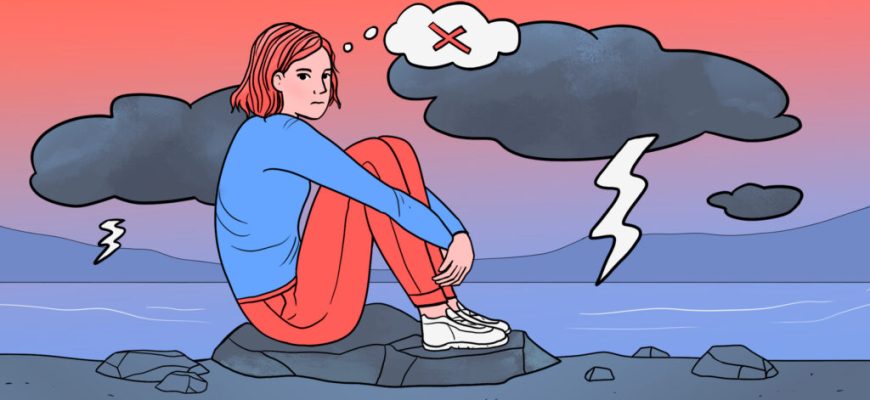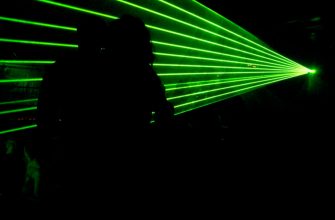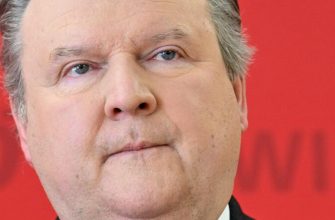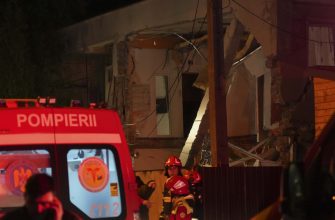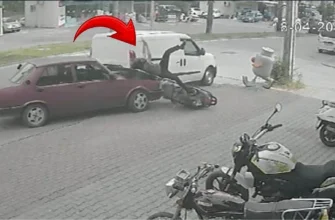In social networks, the phrase “It is better to do and regret than not do and regret” is often mentioned. She is understood differently. Some motivate themselves to be bolder with it. For example, quit a job you hate to find a better job, or finally move. Others justify any manifestations of irresponsibility in this way and use the phrase as an analogue of the expression “We live once.”
But here’s what’s interesting. In a situation where people do have a choice, many often choose to do nothing at all. And even if the consequences in the end will be more severe and you will have to regret with a greater degree of probability than if you go for something and make a mistake. We understand why this happens.
- Why do we choose to do nothing
- Because inaction helps to disclaim responsibility
- Because the harm of inaction is judged less strictly
- Because they don’t know what else is possible
- Because they are afraid of the unknown
- What to do if inaction interferes
- How to take responsibility for your life
- Solomon’s paradox: why it’s easier to solve other people’s problems than your own
- 9 tips for those who want to stop being afraid and start taking action
- Literature, films, parents: where do the attitudes that harm us come from
- How to know when it’s time to see a psychotherapist
Why do we choose to do nothing
Because inaction helps to disclaim responsibility
Let’s take vaccinations as an example. Even if we do not take into account the coronavirus, the old and not very good measles. This is a serious disease, the complications after which are deadly. Fortunately, there is a vaccination, the immunity after two shots of which is formed in 95% of cases. Prior to its advent, major measles epidemics occurred every 2–3 years and claimed an average of 2.6 million lives per year. For comparison, in 2017, 110 thousand people died due to this disease. This is many times less, but still a lot. It would seem that if the vaccine protects so well, then why are there thousands of such cases, and not dozens?
The problem is that vaccination, although effective, is not comprehensive. Moreover, the WHO expect massive outbreaks of measles because of the coronavirus there were delays and interruptions in the immunization campaign. And, of course, anti-vaxxers who refuse to vaccinate themselves and their children contribute to the spread of the virus. And we are now interested in the latter.
When choosing to vaccinate or not, there are two positions on the scales. One of them is to skip vaccinations and hope that the disease will pass by. Although the consequences of such non-interference can be sad, and this is well known. According to US data:
- One in five unvaccinated people who get measles ends up in the hospital.
- One child in 20 infected will get pneumonia, which is the most common cause of measles death in children.
- One child in a thousand will have encephalitis.
- Up to three children out of a thousand will die.
In this case, measles is transmitted by airborne droplets. If everyone around is vaccinated, the chances are high that the child will not encounter the disease. But if a chain of anti-vaxxers emerges, the risks become real. At the same time, those 5% of those vaccinated who have not developed immunity are also at risk.
On the other side of the scale – to be vaccinated, which is considered very safe. Usually the body responds to it with pain at the injection site and a slight fever. Approximately 5% of those vaccinated will experience a high fever. But dangerous consequences occur at less than one in a million vaccinations.
Statistics suggest that it is more correct to vaccinate. But exact numbers lose their meaning when it comes to a specific person. For a worried parent, the second option looks different. A child may or may not get measles, there is a large element of chance. And if a vaccine is introduced and complications arise, then it is the adult who will be to blame, because this is his decision. It doesn’t seem to sound very logical. After all, if the child gets sick, the parent will reproach himself for not having been vaccinated. Maybe it will be, but at the moment of choice it does not matter.
Unfortunately, people are not always logical and consistent. Research show: that many prefer potentially dangerous inaction to less dangerous action. And often the percentage probability of a negative outcome cannot be calculated, so a person simply chooses between two options with a possibly bad ending. And in this case, inaction is more attractive.
It might seem that the choice should greatly distort whether the vaccine is given to oneself or to a child who is greatly worried about. Not really. So, in one experiment, the subjects were asked to imagine themselves as doctors. They had to make a decision regarding a patient with an unusual infection. If nothing is done, the disease will cause irreversible brain damage with a 20% chance. However, steps can be taken to prevent this. But there is a 15% risk that the procedure itself will damage the brain. Moreover, the situation had to be looked at from the point of view of the infected person and from the point of view of a health official, whose position would have affected several people. In 13% of cases, participants were in favor of inaction, although manipulation would clearly increase the person’s chances of survival. At the same time, researchers came to the conclusionthat such a choice was made precisely in connection with the unwillingness to take responsibility for the bad consequences of the action.
Because the harm of inaction is judged less strictly
The propensity to do something is influenced not only by how a person evaluates himself, but also by what others think about him. And here, too, alas, people mostly rely not on statistics and figures.
The same researchers who presented the subjects with the medical dilemma from the previous block carried out many experiments on this subject. For example, they suggested solving the trolley problem, when you can leave everything as it is, so that several people die, or switch the switch on the rails, then only one will die.
But it’s also interesting that the scientists asked the participants to rate the decisions of others. And it turned out that, on average, people are more loyal to inaction with negative consequences than to an action that ended badly. The subjects considered non-intervention less immoral than interference.
Because they don’t know what else is possible
There has been a lot of talk about learned helplessness lately. For the first time a hypothesis about it described back in 1967 and confirmed by experiments. First, three groups of dogs were placed in special booths, which were supplied with current discharges. The first group could turn off the blows by pressing the button with their nose. The third was not exposed to current at all. And the dogs from the second could not affect the discharges in any way.
Then the animals were moved to a special chamber from which they could jump out. Dogs from the first and third groups, having felt the discharge, did just that. And those who in the past experience could not turn off the current, just lay down on the floor and whined. There were experiments on humans, more details can be found in a separate article.
The researchers concluded that animals and people, if they are deprived of the right to act, gradually get used to it and stop trying. However, in more recent work, scientists give opposite justification. In their opinion, animals, including humans, are initially helpless, and in the process of life they learn to act. And if they do not receive reinforcement for such behavior, then, accordingly, they stop trying and begin to put up with their situation.
However, changing the places of the terms does not change the essence: people often choose to do nothing, because they have no idea what is different.
For example, Elon Musk is going to colonize Mars. And he does not just dream about it, but performs certain actions that bring him closer to the goal. And you can, of course, say that this is the richest man who was lucky with his family, no wonder. That’s right, starting positions affect a lot. But it is also important to remember that there are quite a lot of wealthy people in the world, but not so many who are even trying to do something great. To reach this level of goal setting, you need to be able to dream big and truly believe that everything will work out.
If you return to the world of ordinary people, you can see something completely different. Let’s say a child says: “I want to be an astronaut.” And he hears: “Well, where do you go, you are so clumsy, and you get sick in the car, you will go to the factory like dad and grandfather.” The teenager declares: “I want to enter Moscow State University.” And they answer him: “Do you have any idea how difficult it is to get there? We have a great university around the corner.” The graduate says: “I want to move abroad, they even gave me a grant in a foreign graduate school.” And he hears: “Who needs you there? Come back with your tail between your legs. And in general, where he was born, he came in handy there! Although someone becomes an astronaut, studies at Moscow State University, moves – simply because he believes that it is possible. But for our lyrical hero, Moscow State University and Mars are approximately on the same shelf – the top one, which cannot be reached, and therefore it is not even worth trying.
Because they are afraid of the unknown
To do nothing means to leave things as they are. That is, to keep oneself in a known and understandable position. The unknown is scary – and literally, though not all people are the same. At risk are those who suffer from increased anxiety. Research showthat the body and brain of such people react to the unknown as if a person is in real danger. Feelings are not pleasant.
Therefore, people choose to do nothing and not face the new, even if they are forced to remain in adverse conditions.
What to do if inaction interferes
With the current cult of productivity and efficiency, it may seem that inaction must be forged into action, otherwise everything will go awry. It’s not entirely fair. A person first of all assesses whether he is satisfied with his life strategy, and if he is happy, then why change something. But sometimes it happens that the inability to move really interferes.
Unfortunately, there are no easy answers. The reasons are obvious: it is unlikely that advice in the style of “take it and do it” will help those who find it difficult to decide on something. We often choose not to act because we have carefully considered everything, it is an irrational decision. And they are not easy to trace. You will have to spend time studying yourself, making mistakes and celebrating small victories. Here are some articles that might be helpful.
How to take responsibility for your life
Without understanding one’s responsibility one cannot be free, including in actions, choices, thoughts, dreams.
Read →
Solomon’s paradox: why it’s easier to solve other people’s problems than your own
Often, informed decisions are easier to make if you step back from the problem and pretend that you are giving advice to someone else.
Read →
9 tips for those who want to stop being afraid and start taking action
Fear of the unknown is a defense mechanism that just sometimes fails. Therefore, it is important to learn how to deal with this feeling.
Read →
Literature, films, parents: where do the attitudes that harm us come from
Often, the reluctance to act speaks in our head with someone’s specific voice. And it is important to understand whose exactly.
Read →
How to know when it’s time to see a psychotherapist
Sometimes you can go faster if you find an experienced guide. Turn to a specialist – enlist the support of someone who will help you get to the bottom of the problem and give you the tools to fill the dug hole with useful skills for decision-making and action.
Read →
Read also 🧐
